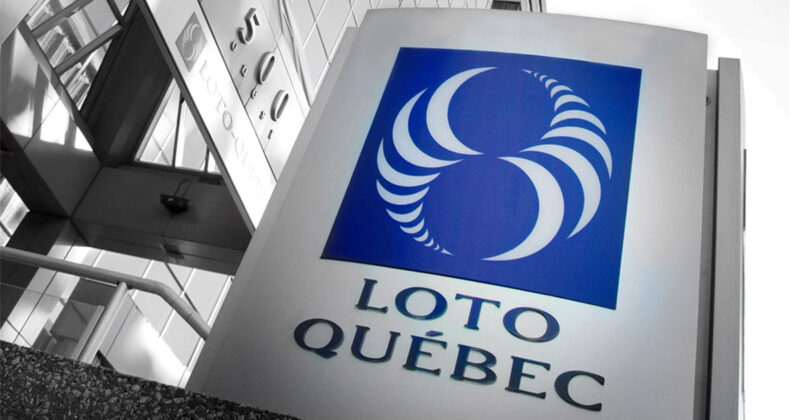In this week’s edition of the GME3 we’re covering an update to the QOGC’s calls for a registered igaming regime in Québec, a new lawsuit launched in Spain against Meta, and a controversial decision from popular streaming platform Twitch. Read on for the full stories!
Gambling
Jouer S’il Vous Plaît!
The Québec Online Gaming Coalition (QOGC), an industry-led group created to represent the interests of leading online gaming operators has released the results of a survey conducted to determine how residents of Québec engage with igaming content. Led by Mainstreet Research (who I’m sure most of our Canadian readers have received a call from before), the survey found that nearly 75% of igaming players in Québec use privately-operated platforms for sports betting and online casino games. The remaining 27% of players use Loto-Québec’s Espace Jeux, the sole government-operated platform available in the province.
The QOGC argues that, based on this survey, Loto-Québec is not adequately meeting the demand for igaming. By not allowing these privately-owned platforms to be regulated by the provincial government, Québec players are left relatively unprotected against money laundering, fraud, and growing concerns about responsible gaming. Mainstreet Research also found that two-thirds of respondents were in favour of regulating private igaming platforms via a licensing and tax system, similar to what we currently have in Ontario.
Our friends over at Gaming News Canada were quick to reach out to Loto-Québec for a response, and received the following quote:
“Some members of the coalition formed to promote responsible gaming and a new regulatory framework in Québec are violating Canada’s Criminal Code by illegally offering games to Québec residents, which raises serious doubts and questions about their actual intentions. In Québec, the rules could not be clearer: if it’s not Loto-Québec, it’s not legal. Loto-Québec is the only organization that can offer a 100% legal online casino and sports betting website in the province.”
We can see that Loto-Québec is not in a rush to create an Ontario-esque regulated gaming scheme. We’ll have to see how the market continues to evolve, but with such a significant number of the player base utilizing not-quite-legal gambling platforms, it seems that something will have to give eventually.
Media
Meta Feels the (S)pain
More and more jurisdictions are jumping on the Meta legal dogpile that began earlier this year with a $1.3 billion fine for violating EU data protection rules. Now Spain is getting involved, as the Information Media Association (IMA), which represents over 80 Spanish newspapers, has filed a suit against Meta over unfair competition in online advertising by allegedly ignoring European Union rules on data protection. The IMA is seeking 550 million euros ($600 million).
The Association is accusing Meta of “systematic and massive non-compliance” with European data regulations, which has resulted in Meta being able to offer advertising space based on an “illegitimately obtained competitive advantage,” which indirectly threatens the livelihood of Spanish media organizations.
Meta uses behavioural advertising as a primary source of revenue. By tracking users’ online behaviour, such as browsing habits, clicks, and app usage, Meta can build accurate user profiles that allow them to target ads directly to consumers who would be most affected by them.
The legal underpinnings that allow this practice have eroded in the EU this past year. In July 2023, the EU’s top court ruled that users of Meta’s platforms must opt in to behavioural advertising, and can no longer be subjected to the practice without consent. In response, Meta began to offer ad-free versions of their most popular platforms for a monthly fee.
The IMA is essentially arguing that Meta’s access to user data (which they arguably shouldn’t even have anymore) gives them an unfair advantage over more traditional media outlets. As such, the Association has called on marketers to “entrust their advertising campaigns to safe, reliable and responsible media, respectful of the rights of citizens and committed to promoting democratic quality in Spain.”
Irene Lanzaco, general director of the IMA left us with this stirring message to consider: “The time has come to put an end to the behaviour of technology companies that can afford to pay million-dollar penalties to continue failing to comply with regulations, destroying the market in which we operate and making the illegitimately obtained income their own.”
Lanzaco’s statement puts into words what a lot of people are concerned about: there seems to be less and less oversight regarding privacy and data collection than ever, and limited options for recourse when companies overstep. With more and more people seeing privacy as a serious issue it will be interesting to see how these suits brought against Meta turn out.
Entertainment
Seoul Searching Streamers
The popular streaming platform Twitch has announced its intention to shut down its services in South Korea in 2024. This is a result of, what Twitch has described as, “prohibitively expensive” costs that come with operating in the country.
This came as an unfortunate surprise to South Korean users and creators alike. Gaming and streaming is a massive industry in South Korea, with the overall gaming market reaching $15 billion in 2021. Esports are especially popular there, and South Korea boasts some of the most famous and successful teams in multiple games, including popular titles like League of Legends and Overwatch.
So why then would Twitch choose to abandon this seemingly bountiful market? In 2016, South Korea introduced the Sending Party Network Pays (SPNP) legislation, which has colloquially been called the “Internet traffic tax.” Essentially the way that it works is that the party sending traffic over the Internet to the user (like Twitch) must pay a fee to the telecommunications company.
This has not been a popular change, with companies like Cloudflare, YouTube, Netflix, and Meta contesting the law. In 2020, Netflix took the issue to court, arguing that there was no obligation for the company to pay for the use of a broadband network that the user is already paying for. In 2021, the court ended up rejecting this argument.
Twitch tried to limit the costs of operating in South Korea, including capping video quality at 720p, but apparently, it wasn’t enough. Now, South Korean streamers will have to migrate their followers to alternative streaming platforms, such as YouTube or AfreecaTV. Twitch plans to wind down its South Korean operations by February 27, 2024.
GME Law is Jack Tadman, Zack Pearlstein, Lindsay Anderson, and Will Sarwer-Foner Androsoff. Jack’s practice has focused exclusively on gaming law since he was an articling student in 2010, acting for the usual players in the gaming and quasi-gaming space. Zack joined Jack in September 2022. In addition to collaborating with Jack, and with a keen interest in privacy law, Zack brings a practice focused on issues unique to social media, influencer marketing, and video gaming. Lindsay is the most recent addition to the team, bringing her experience as a negotiator and contracts attorney, specializing in commercial technology, SaaS services, and data privacy.
At our firm, we are enthusiastic about aiding players in the gaming space, including sports leagues, media companies, advertisers, and more. Our specialized knowledge in these industries allows us to provide tailored solutions to our clients’ unique legal needs. Reach out to us HERE or contact Jack directly at jack@gmelawyers.com if you want to learn more!
Check out some of our previous editions of the GME3 HERE and HERE, and be sure to follow us on LinkedIn to be notified of new posts, keep up to date with industry news, and more!




